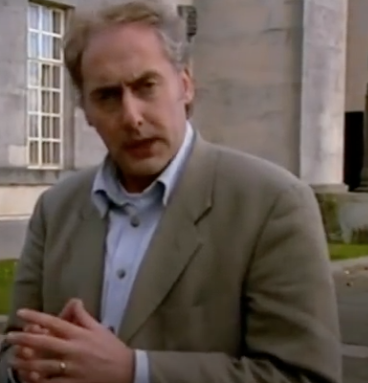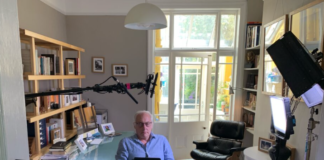- Rocket man - 2nd March 2026
- Death wish two - 2nd March 2026
- News to celebrate! - 1st March 2026

Here our Editor Phil Parry looks at the remarkable ‘sameness’ of Wales, and how this could be a hindrance in the future.
In the past he has described how he was helped to break into the South Wales Echo office car when he was a cub reporter, recalled his early career as a journalist, the importance of experience in the job, and making clear that the ‘calls’ to emergency services as well as court cases are central to any media operation.

He has also explored how poorly paid most journalism is when trainee reporters had to live in squalid flats, the vital role of expenses, and about one of his most important stories on the now-scrapped 53 year-old BBC Cymru Wales (BBC CW) TV Current Affairs series, Week In Week Out (WIWO), which won an award even after it was axed, long after his career really took off.
Phil has explained too how crucial it is actually to speak to people, the virtue of speed as well as accuracy, why knowledge of ‘history’ is vital, how certain material was removed from TV Current Affairs programmes when secret cameras had to be used, and some of those he has interviewed.

Earlier he disclosed why investigative journalism is needed now more than ever although others have different opinions, and how information from trusted sources is crucial at this time of crisis.
Wales is the least ethnically diverse of any region or country in the British Isles.
More than 93 per cent of the population is ‘White British’ (or Welsh) and just 2.4 per cent are ‘Other-White’ (including Irish), who are concentrated almost exclusively in the South Wales cities of Cardiff, Newport and Swansea.
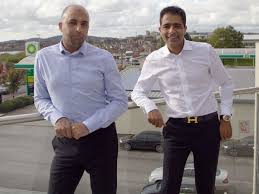
Yet this comes as ethnic communities in other parts of the UK have grown enormously, and have contributed hugely to the economy.
Two brothers from Blackburn who are the sons of Indian immigrants, Mohsin and Zuber Issa, for example, have just completed the takeover of Asda from the American behemoth Walmart in a deal worth £6.8 billion.
The enormous rise in the population of ‘mixed-race’ people is, if anything, even more extraordinary, and undermines the whole concept of ‘identity politics’.
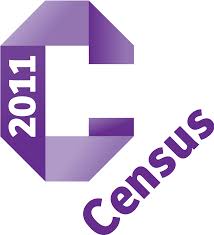
The number of people in the UK who say they have a ‘mixed-race’ (or multi-ethnic) background almost doubled between the censuses of 2001 and 2011, to about 1.2m, or slightly more than 2 per cent of the overall population.
That figure is probably an undercount, since not all children of ‘mixed’ marriages will have ticked one of the ‘mixed’ categories, and the number is likely to have grown massively since the last census in 2001.
Research suggests that the true figure could be three times as high.
If that is right, ‘mixed-race’ people constitute a larger proportion of the population than any ethnic group, and it has been given an added boost with the marriage of Harry and Meghan.
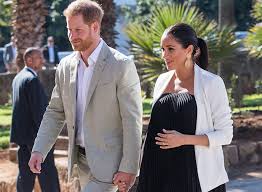
‘Mixed-race’ people make up a greater share of all non-whites in the UK (16 per cent) than in America (11 per cent).
The pattern of marriage is different, too, with most Americans of ‘mixed’ parentage settlng down with a partner from a minority group, but 50 per cent of Britons with black African and white parents – and 75 per cent of those whose parents are white and black Caribbean marrying a white partner.

And that share is still growing.
There are more and more children of ‘mixed-race’ parents, and with the proportion of cohabiting couples that are interracial shooting up from 2.6 per cent in 2001 to 4.5 per cent by 2011, the next census, due next year, is almost certain to report an even larger number of ‘mixed-race’ Britons.
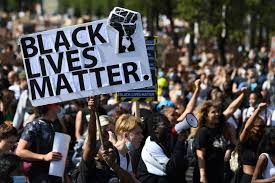
This has a huge impact on perceptions of ‘Britishness’ or ‘Welshness’ as well as respect for the law.
A poll for The Economist by Ipsos Mori suggests that ‘mixed-race’ Britons are, in general, less wary of Britain’s institutions and history than black Britons.
They are marginally less likely to support Black Lives Matter (BLM), less likely to agree with the proposition that “Britain is a racist country”, and much less likely to think most British police officers are intentionally racist.
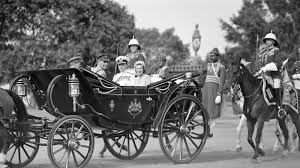
Though a plurality of all ethnic groups surveyed thought the British Empire should be a source of neither shame nor pride, considerably more ‘mixed-race’ than black Britons were proud of it.
This could have an enormous effect on Welsh protest groups in years to come, as the general population sees other areas becoming more prosperous and ‘identity politics’ becoming less important.
 The very concept of ‘Welshness’ may be weakened.
The very concept of ‘Welshness’ may be weakened.
This might be unnerving to the protest groups striving for an independent Wales…
Race for life part two comes soon on The Eye when Phil examines why Wales does not have the record of racism shown by other countries.
The memories of his astonishing 37-year award-winning career in journalism (when ‘identity politics’ were in the ascendancy) as he was gripped by the rare neurological disabling condition Hereditary Spastic Paraplegia (HSP), have been released in a major book ‘A GOOD STORY’. Order the book now!










